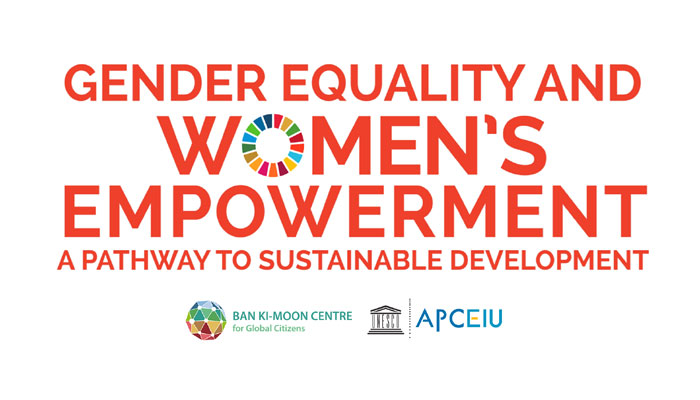Women Empowerment Centre to be certified
Islamabad: As part of major reforms brought under Ehsaas, the training courses offered by Women Empowerment Centre (WEC) will be certified by National Technology Board by the end of this year.
The plan was shared by SAPM Dr. Sania Nishtar when she made a visit to Ehsaas WEC in Burma Town. The WEC operates under the supervision of Pakistan Baitul Mal that is one of the four main executing agencies of Ehsaas.
This certification will significantly enhance the credibility and acceptance of the women’s livelihoods skills in local economy. Every year, as many as 250 girls are graduated from each WEC to start their business or a job.
Further, to make WEC graduates self-reliant, PBM and PPAF is exploiting synergies to link trained women with interest-free loans. The size of loans ranges from Rs25,000 to Rs100,000 depending upon the viability of each business.
In her visit to the centre, Dr. Nishtar met with girls and women who were enrolled in complementary skills training courses- computer literacy, beautician, dress designing and making, and hand and machine embroidery etc. She listened to suggestions and concerns of the girls. During the visit, the SAPM was joined by Secretary Poverty Alleviation and Social Safety Division and Managing Director Pakistan Baitul Mal. At the centre, a low-income group of girls and women are trained in two shifts, bi-annually. Local skills are also being imparted in the WEC.
Under the umbrella of Ehsaas, strengthening and expansion of WECs is one of the tangible measures being taken for the socio-economic empowerment of women. Under the supervision of Pakistan Baitul Mal, the disadvantaged women are empowered through skills development in the fields of livelihoods, education, economy, and self-reliance at 157 WECs nationwide.
“Ensuring equality, training women, and providing access to opportunities to deserving women is the core thinking behind WECs. It is heartening to see that WEC’s skills training courses enable the young girls to start their own businesses and earn livelihoods for their families”, said Dr. Nishtar. Further, she appreciated that the WECs are significantly contributing to reducing women’s dependence on government-led social safety nets and to bring them into the mainstream of economic development and financial inclusion.
-
 Lawyer Of Epstein Victims Speaks Out Directly To King Charles, Prince William, Kate Middleton
Lawyer Of Epstein Victims Speaks Out Directly To King Charles, Prince William, Kate Middleton -
 Microsoft CEO Shares How Gates Doubted $1bn OpenAI Investment
Microsoft CEO Shares How Gates Doubted $1bn OpenAI Investment -
 Milo Ventimiglia Calls Fatherhood 'pretty Wild Experience' As He Expects Second Baby With Wife Jarah Mariano
Milo Ventimiglia Calls Fatherhood 'pretty Wild Experience' As He Expects Second Baby With Wife Jarah Mariano -
 Chinese Scientists Unveil Advanced AI Model To Support Deep-space Exploration
Chinese Scientists Unveil Advanced AI Model To Support Deep-space Exploration -
 Anthropic’s New AI Tool Wipes Billions Off Cybersecurity Stocks
Anthropic’s New AI Tool Wipes Billions Off Cybersecurity Stocks -
 Trump Announces He Is Sending A Hospital Ship To Greenland Amid Rising Diplomatic Tensions
Trump Announces He Is Sending A Hospital Ship To Greenland Amid Rising Diplomatic Tensions -
 'Never Have I Ever' Star Maitreyi Ramakrishnan Lifts The Lid On How She Avoids Drama At Coffee Shops Due To Her Name
'Never Have I Ever' Star Maitreyi Ramakrishnan Lifts The Lid On How She Avoids Drama At Coffee Shops Due To Her Name -
 Inside Prince William’s Plans For Prince Harry: What Will Happen To Duke Once He’s King
Inside Prince William’s Plans For Prince Harry: What Will Happen To Duke Once He’s King -
 Chyler Leigh Pays Moving Homage To 'Grey’s Anatomy' Co-star Eric Dane: 'He Was Amazing'
Chyler Leigh Pays Moving Homage To 'Grey’s Anatomy' Co-star Eric Dane: 'He Was Amazing' -
 Did You Know Tech CEOs Limit Screen Time For Their Own Kids?
Did You Know Tech CEOs Limit Screen Time For Their Own Kids? -
 Matthew Lillard Admits Fashion Trends Are Not His 'forte'
Matthew Lillard Admits Fashion Trends Are Not His 'forte' -
 SpaceX Launches Another Batch Of Satellites From Cape Canaveral During Late-night Mission On Saturday
SpaceX Launches Another Batch Of Satellites From Cape Canaveral During Late-night Mission On Saturday -
 Princess Beatrice, Eugenie Get Pulled Into Parents’ Epstein Row: ‘At Least Stop Clinging!’
Princess Beatrice, Eugenie Get Pulled Into Parents’ Epstein Row: ‘At Least Stop Clinging!’ -
 Inside Kim Kardashian's Brain Aneurysm Diagnosis
Inside Kim Kardashian's Brain Aneurysm Diagnosis -
 Farmers Turn Down Millions As AI Data Centres Target Rural Land
Farmers Turn Down Millions As AI Data Centres Target Rural Land -
 Trump Announces A Rise In Global Tariffs To 15% In Response To Court Ruling, As Trade Tensions Intensify
Trump Announces A Rise In Global Tariffs To 15% In Response To Court Ruling, As Trade Tensions Intensify




